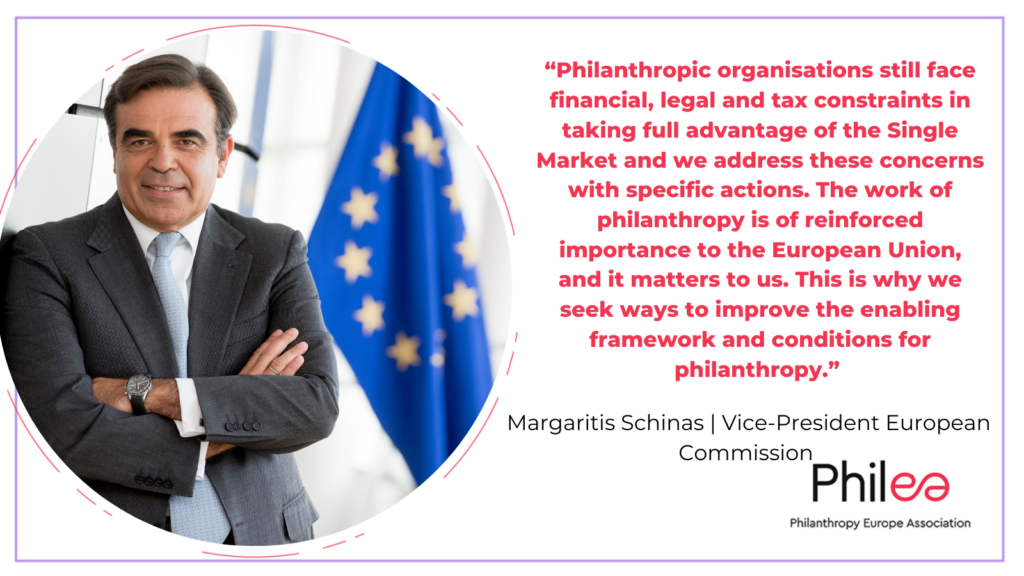EU Social Economy Action Plan opens a new chapter for philanthropy
The Action Plan refers to the importance of improving the “enabling environment” for the social economy to thrive and acknowledges that foundations and associations encounter difficulties in enjoying the full benefits of the Single Market.
The day before its release, European Commission Vice President Margaritis Schinas addressed participants at Philanthropy Europe Association’s (Philea) EuroPhilantopics event recognising that:
“philanthropic organisations still face financial, legal and tax constraints in taking full advantage of the Single Market and we address these concerns with specific actions. The work of philanthropy is of reinforced importance to the European Union, and it matters to us. This is why we seek ways to improve the enabling framework and conditions for philanthropy.”

Philea welcomes the explicit flagging of the issue of the tax treatment of cross-border donations to public-benefit organisations in the Action Plan. When donating across borders, the procedures applied by Member States increase compliance and administrative costs and create uncertainty for both philanthropic entities and donors.
In order to address this concern, the European Commission will publish guidance clarifying the existing rules on the tax treatment of cross-border public-benefit donations affecting foundations and associations, and the implementation of the principle of non-discrimination with Member States.
“More guidance to Member States to better implement the non-discrimination principle is a real breakthrough for the Single Market for Philanthropy with a view to mobilise more private resources for public good also across-borders,”
stated Delphine Moralis, CEO of the European Foundation Centre and incoming CEO of Philea, the convergence of EFC and Dafne.
Foundations are constantly enlarging their toolbox. The Action Plan acknowledges them as both social economy actors in their own right and as key supporters of social economy via their expertise, grants and mission-related investment of their endowments. In light of increased interest in the foundation sector, the Commission is now assessing the launch of dedicated co-investment mechanisms with foundations and philanthropic organisations around target mission areas, with the aim of channelling additional capital towards sustainability, inclusion, social innovation, housing and homelessness, media pluralism, and developing social impact ecosystems.
“More data is needed on the weight of philanthropic donations and the potential to leverage this kind of private investment to further advance the social economy and other EU policy goals,”
added Max von Abendroth, Dafne Executive Director and incoming Chief Strategy Officer of Philea.
“We are very happy to see that the Commission will launch a specific study on philanthropic donations in the EU shortly”.
Philea is pleased to accept the European Commission’s invitation to endorse this Action Plan and to actively contribute to its implementation as part of the expert group on social economy and social enterprises, and beyond. As an active member of Social Economy Europe, we will do this in close collaboration with the wider social economy family.